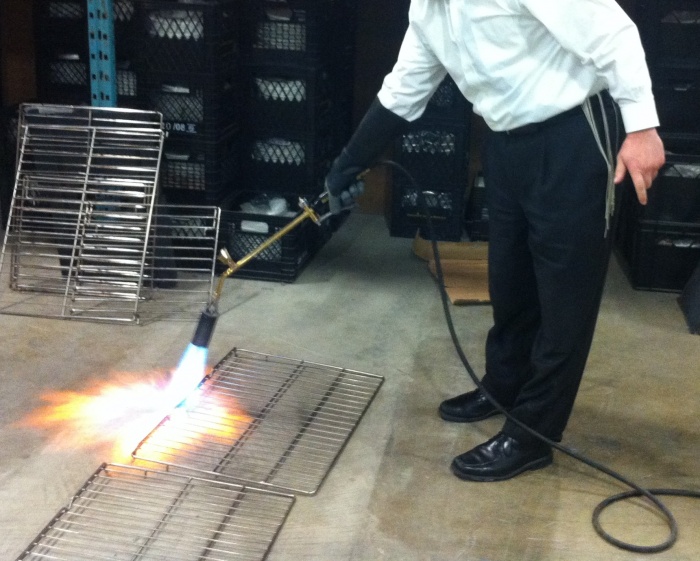By Richard Rabkin
“What is a ‘mashgiach’ and what exactly do they do”?
This is a question we often receive at the Kashruth Council of Canada (COR) –often followed by “and how do you spell that …M-A-S-H-G-I-A-C-H?” So why don’t we examine the roles and responsibilities of a COR mashgiach.
Just like the government has health inspectors who visit restaurants to ensure compliance with the government’s health and safety standards, in simple terms, a mashgiach or a kosher supervisor, ensures that an establishment is in compliance with kosher standards.
Is there a program where one studies to become a mashgiach?
Much of the training is on the job — new COR mashgichim go through a training regimen with senior COR mashgichim. In addition, a mashgiach must be knowledgeable about the laws of kashrut and be scrupulous about their observance in his or her own personal life. Yes I did say “her.” A common misconception is that a mashgiach must be a man. This is not the case, and COR employees a number of talented female mashgichot.
A mashgiach’s roles and responsibilities may vary depending on the type of establishment where he or she is working, but in most cases, the mashgiach is responsible for ensuring that every product or ingredient that enters a COR certified establishment is kosher. In fact, deliveries may only be made after the mashgiach has verified the associated paperwork and approved the delivery’s contents. A mashgiach must also clean fruits and vegetables of insects. Aside from being, well, a little disgusting, insects are also not kosher. You would be surprised by how many common fruits and vegetables are infested with insects – those that are visible to the naked eye – so the mashgiach has to be ready to roll up his sleeves and “de-bug” (if that’s a word). A mashgiach will also turn on the cooking equipment and pilot lights to ensure that the food is compliant with a regulation called “bishul yisrael” – that a Jewish person must be involved in the act of cooking food in order for it to be considered kosher.
In many COR establishments, the mashgiach is what we call a “working mashgiach.” A working mashgiach is optional but some restaurants find him beneficial because not only does he oversee the integrity of the kosher program, but he is also an employee of the business, helping in any way he can. Because meat is highly kosher sensitive, a kosher observant person is required on premises at all times, and as a result, many meat restaurants employ a working mashgiach. COR dairy or pareve restaurants only require a yotzei venichnas (coming and going) mashgiach, and these establishments typically receive around 3 visits per day from our COR “route mashgichim” who are assigned restaurants in their quadrant of responsibility and simply travel a circuit a few times daily.
A caterer’s mashgiach situation may be a little bit more complicated. Caterers typically cook in their own kitchens (called commissaries) and the working mashgiach onsite ensures that everything is kosher. But what happens when a caterer delivers food to an offsite event, such as a golf club, museum or other event venue? If the event organizer has requested that this be a “supervised event” it means that they have requested a mashgiach who will for example, be responsible for making sure that the kosher food is not reheated with non kosher equipment, served on non kosher dishes, or that no non kosher beverages or food are brought into the event. At “supervised events” COR certificates will be placed at the entrance of the event so guests will know that the event is under COR supervision. If there is no mashgiach present however, there is no one overseeing the event’s kosher program. This is what we call an “unsupervised event.”
As you can see, it is a difficult job but mashgichim are really the unsung heroes of every kosher consumer. It would not be an exaggeration to say that without the mashgiach kosher food would be virtually nonexistent. That would make for a lot of hungry Jews – and no one wants to see that.
This article originally appeared in the Canadian Jewish News

